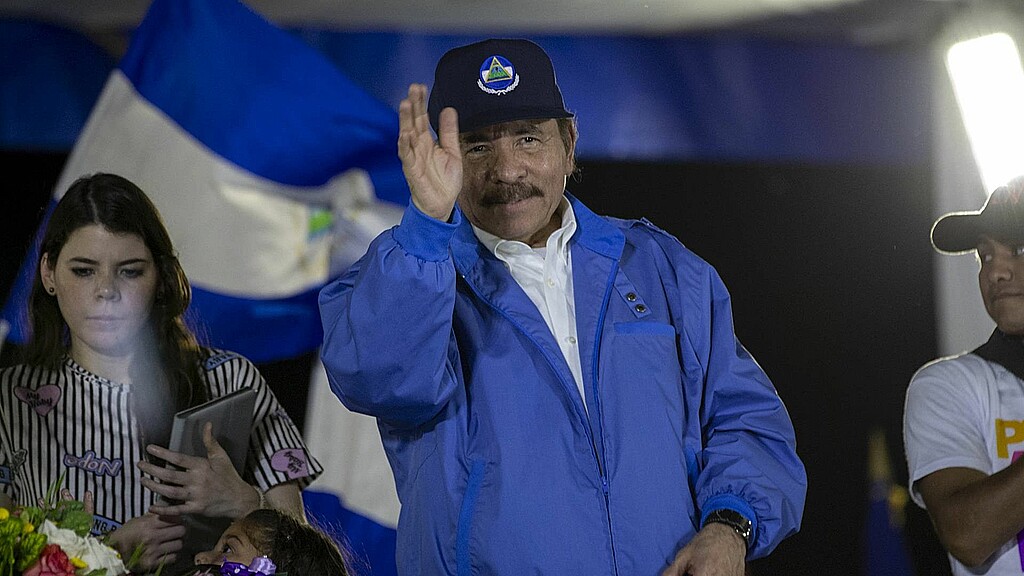Crime
Ortega calls his own brother a "traitor" after telling press the Nicaraguan dictatorship is destined to fail
Ortega retaliated against his brother by shaming him for decorating a U.S. military attaché in 1992, calling it an “act of surrender” and “national shame”

May 30, 2024 1:22pm
Updated: May 31, 2024 9:55am
Nicaraguan dictator Daniel Ortega called his brother Humberto, whom the police placed under “medical surveillance” in his home several days ago, a "traitor" for having decorated a U.S. military attaché in Managua in 1992.
“He sold his soul to the devil,” Ortega said during an event before dozens of soldiers and police, in the first public allusion to his brother since the retired general spoke in a May 19 interview with Infobae. During the interview, Humberto suggested that his brother, Daniel, has no apparent successors and that his regime will perish after he dies.
“Without Daniel, I see it very difficult for two or three to come together. Much less one in particular, and even more difficult in the family. Children who have not had the accumulation of a political struggle. Not even Somoza could establish his son,” the former military chief said.
Daniel Ortega was reportedly furious about the comments and retaliated by shaming his brother during a speech he recently gave to the Nicaraguan military.
Referring to Humberto Ortega only as “the head of the Army at that time,” without mentioning his name, Daniel Ortega chided his brother for previously decorating U.S. military attaché Dennis Quinn during the 1990s as an “act of surrender” and “national shame.”
While Ortega criticized the move, it was reportedly done at the time when his regime was trying to curry favor with the United States. Still, he blamed his brother as if he had made the gesture unilaterally as a celebration of America’s capitalist values.
“This inconceivable action is classified as a national shame by awarding a Yankee soldier a medal of such relevance and significance and evidently constitutes an act of surrender and betrayal of the country,” Ortega said.
Ortega said that his brother had “given his soul to the devil” in the 1990s and proceeded to annul the decoration by decree.
Quinn, who was awarded the Camilo Ortega Medal at that time, was the youngest of the three brothers who died in combat during the final insurrection of the Sandinistas against the Anastasio Somoza military regime in 1978.
The two brothers were part of the Sandinista guerrilla force that fought against the dictatorship of Anastasio Somoza, the last leader of a dynasty that ruled the country with an iron fist for four decades.
After the revolution’s victory in 1979, Humberto Ortega became the head of the Sandinista People’s Army while Daniel took control of the government, first under a government junta and then personally.
Humberto continued to lead the military until his brother was defeated in 1990 by pro-democracy candidate Violeta Barrios de Chamorro, who presided over the country for almost seven years.
Daniel Ortega returned to power in 2007 and has remained in control of the country after repeated “elections” that have been challenged by the international community.
The Sandinista Army, led by Humberto from 1979 to 1995, created the medal in his honor after the fall of Somoza one year later.
Opponents in exile have said that Humberto Ortega, a critic of the regime, is now under house arrest, after the Nicaraguan police installed a medical unit in his house.
The Nicaraguan regime passed a constitutional reform in February 2023, which established that people convicted of “treason against the homeland” would be stripped of their nationality. To date, the regime has revoked the nationality of more than 300 opponents and critics of its government, sending them into exile while accusing them of “traitors” and “selling out the country.”







